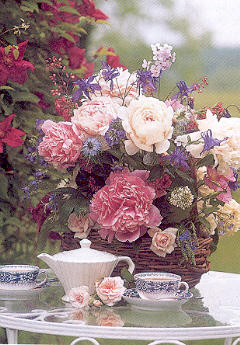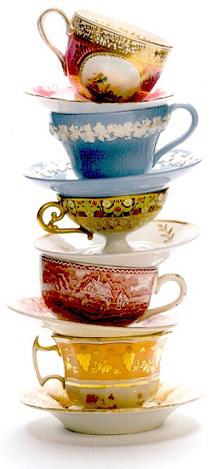winter 2008/09
Second only to water, tea is the world's most consumed drink. Tea provides us with natural fluoride, manganese, potassium, calcium and vitamins B1, B2, B6 and folic acid.
Find your own cup of tea.
FENNEL
For centuries, this perennial herb with a mild, licorice-like flavour has been used as traditional medicine in Europe and Chiuna for relief of flatulence, infant colic and other digestive disorders. Use a teabag or add one to two traspoons crushed seeds per cup of boiling water and steep for 10 minutes.
PEPPERMINT
With a deceptively strong aroma, this herbal tea has a sweet, refreshing flavour that can be enjoyed hot or cold. Peppermint is effective in reducing abdominsl psin, flatulence and diarrhea with irritable bowel syndrome. For an at-home brew, bring natural spring water to a boil, cool slightly, and pour over fresh peppermint leaves in an infuse. Steep for 7 minutes. A teabag works too.
TAHEEBO
This tea is also known as Pau D'arco, ipe oxo and lapacho. Made of the inner bark of Soth American lapacho tree, this herbal tea provides immunostimulating action that rivals Echinachea and ginger. Taheebo is known for its potent antimicrobial effects and is often used for Candida or yeast infections.
GINGER
This spicy root has been used for centuries as therapy for nausea and tummy trouble, as well as congestion and sore throat. To calm an upset tummy or at the first sign of a cold, place 1/2 inch of ground ginger root in an infuser with boiling water(or use a tea bag)and steep for several minutes. Sweeten with honey, and enjoy the quick relief of your symptoms.
CHAMOMILE
A relative of the Daisy grown in Europe and western Asia, sweet tasting chamomile has traditionally been used for digestive disorders, menstrual cramps and as a natural sedative. Drinking Chamomile tea daily with meals could prevent the progress of hyperglacemia and diabetic complications.
YERBA MATE
An infusion made from holly leaves. Yerba Mate has been used for centuries in South America as a remedy for physical and mental fatigue, but without the nervousness and jitters associasted with coffee. The reason for the different caffeine effects is unclear.
ROOIBOS
This sweet beverage comes from the Aspalathus linearis plant, a red bush native to South Africa. Traditional medicinal uses of rooibos include soothing colic, alleviation of allergies and asthma, and promoting skin health. Rooibos is rich in antidant flavonoids and is caffeine-free, making it a perfect bedtime beverage.
VALERIAN
Made with the dried root of the valerian flowering plant, this herb was a favourite of Hippocrates and is used for promoting relaxation. It is effective for inducing sleep and improves sleep quality. Valerian tea may also help ease menstrual discomfort. Because of it pungent flavour, it is often mixed with Camomile. Sweeten with honey if desired.






